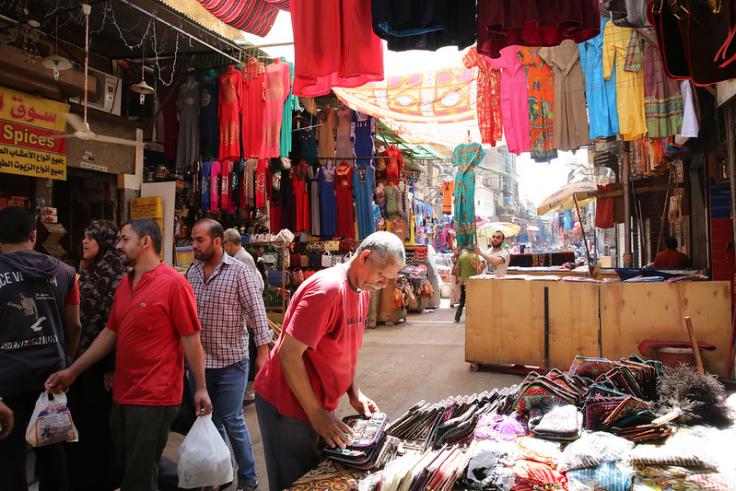 Egypt's Resilience to Pandemics
Egypt's Resilience to Pandemics
Background
Egypt was awarded US$23 million from the Pandemic Fund to help develop a robust prevention, preparedness, and response system and boost the country’s resilience to pandemics. The grant has mobilized an additional US$10.1 million in co-financing and US$9.9 million in co-investment.
The Government of Egypt is committed to ensuring that everyone has equal access to healthcare, including refugees and immigrants. Egypt is one of the most populous nations in Africa and the Middle East. More than half a million refugees, asylum seekers, and migrants entered Egypt in 2023 alone, many fleeing violence in Gaza and Sudan. Large-scale movements of people increase the risk of vaccine-preventable and vector-borne diseases, while frequent human-animal interactions and Egypt’s location along major trade routes increase the risk of zoonotic diseases, including avian influenza, brucellosis, rabies, Rift Valley fever, and West Nile virus. Climate-related extreme weather events, rising sea levels, and inland river flooding all exacerbate the threat of infectious disease further.
In the spirit of multisectoral collaboration that defines the Pandemic Fund, the project is a collaboration among the Ministry of Health and Population, the Ministry of Agriculture and Land Reclamation, and three Implementing Entities: the Food and Agriculture Organization of the United Nations (FAO), UNICEF, and the World Health Organization (WHO).
Project objectives
The Pandemic Fund grant will help Egypt respond to the country’s complex social and environmental dynamics and reduce death, disease and economic hardship associated with pandemics.
Implementation arrangements and key components
The project incorporates the Pandemic Fund’s three priorities -- surveillance, laboratory systems, and workforce development – as well as its underlying themes of community engagement and health equity. Activities within each priority area include:
- Enhancing the country’s disease surveillance and early warning system. This component of the project focuses on expanding and reinforcing surveillance sites, implementing a multisectoral surveillance strategy for antimicrobial resistance (AMR) and linking the surveillance systems for AMR and healthcare-associated infections. It also focuses on increasing the availability of high-quality data and data management.
- Enabling laboratories to diagnose pathogens with pandemic potential. Activities in this area include establishing a biosafety level 3 laboratory, conducting advanced genomics testing, implementing robust quality assurance mechanisms and digitized laboratory networks, and developing national guidelines for biosafety and biosecurity. This work also focuses on misinformation and emergency risk communication and community engagement.
- Developing a skilled, resilient workforce. This component of the project involves expanding community-based One Health networks -- including with community health workers and Community-Based Animal Health and Outreach workers -- and providing comprehensive training programs and simulation exercises for rapid response teams, One Health practitioners, and infection prevention and control staff. Egypt also intends to integrate the One Health curriculum into the Field Epidemiology Training Program for frontline health, veterinary, epidemiology, and laboratory staff.
FAO focuses on activities within the animal health and agricultural sectors, as well as biosafety and biosecurity. UNICEF focuses on community engagement and equity, as well as integrating child health indicators into the country’s surveillance systems. Civil society organizations play a critical community engagement role, as well. The WHO provides technical expertise, guidance, and coordination across the Pandemic Fund’s priority areas.
Expected outcomes
With the grant and its project partners, Egypt aims to:
- Enhance the country’s disease surveillance and early warning system
- Enable laboratories to diagnose pathogens with pandemic potential efficiently and safely
- Develop a skilled, resilient workforce, capable of detecting and managing public health emergencies at the professional and community levels, and
- Mobilize resources to support rapid, efficient outbreak response.
For general inquiries: the_pandemic_fund@worldbank.org
-
 RegionProject RegionsMiddle East & North Africa
RegionProject RegionsMiddle East & North Africa -
 CountryProject CountriesEgypt, Arab Rep.
CountryProject CountriesEgypt, Arab Rep. -
 Amount Approved (US$) $23,054,221
Amount Approved (US$) $23,054,221 -
 Total Co-financing
Total Co-financing
(in kind & in cash) (US$) $10,126,600 -
 Total Co-investment
Total Co-investment
(in kind & in cash) (US$) $9,913,000
Related Links
- FAO Egypt Project Page
-
FAO to co-implement 21 new projects with $109 million in second round of Pandemic Fund financing
FAO | October 23, 2024 -
Egypt launches the first field epidemiology training programme in vector control in the Middle East and North Africa
WHO | July 7, 2025 -
Strengthening surveillance systems for vaccine-preventable diseases in Egypt
WHO | July 28, 2025

